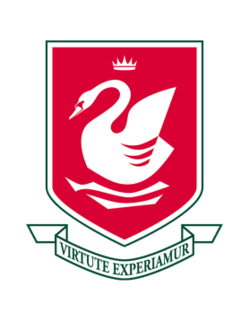Related Research Articles
The music of New Zealand has been influenced by a number of traditions, including Māori music, the music introduced by European settlers during the nineteenth century, and a variety of styles imported during the twentieth century, including blues, jazz, country, rock and roll, reggae, and hip hop, with many of these genres given a unique New Zealand interpretation.
Blam Blam Blam were a New Zealand pop/rock/alternative band. Tim Mahon (bass) and Mark Bell had been members of The Plague and The Whizz Kids. After losing their drummer Ian Gilroy to The Swingers in 1980, Tim and Mark joined up with Don McGlashan, a multi-instrumentalist who played drums and sang many lead vocals.
OMC, or Otara Millionaires Club, were a New Zealand music group, then duo, with vocalist Pauly Fuemana later becoming the sole member. OMC was best known for the 1995 hit "How Bizarre", named one of the greatest New Zealand songs of all time by the Australasian Performing Right Association. The full name of the band is a tongue-in-cheek reference to Otara's status as one of the poorest suburbs of Auckland.

Donald McGlashan is a New Zealand composer, singer and multi-instrumentalist who Is best known for membership in the bands Blam Blam Blam, The Front Lawn, and The Mutton Birds, before going solo. He has also composed for cinema and television. Among other instruments, McGlashan has played guitar, drums, euphonium and French horn.
Mark Bell is a New Zealand musician and songwriter. He has played in bands such as The Plague, The Whizz Kids, Blam Blam Blam, Coconut Rough and Ivan Zagni's Big Sideways. He currently works as a session musician in New Zealand. He is a member of Jordan Luck's band Luck.
The Plague was a New Zealand theatrical punk/art rock band that existed from 1977 to 1979, and was led by Richard von Sturmer. Their most famous performance was at the Nambassa Music Festival in 1979 and they recorded four tracks for the Infectious EP. Von Sturmer went on to a career in writing and film-making and other members went on to play in bands such as The Whizz Kids, Blam Blam Blam, The Swingers, Coconut Rough and Pop Mechanix.
Andrew Snoid is a New Zealand musician, singer, and songwriter.

Westlake Boys High School is a state secondary school for boys located in Forrest Hill, Auckland, New Zealand. The school opened in 1962, when Westlake High School split into Westlake Girls High School on the existing site and Westlake Boys High School on a new site. Serving Years 9 to 13, the college has 2374 students as of November 2021.

Paul Lawrence Fuemana was a Niuean-New Zealand singer, songwriter and musician from Auckland. One of the first globally successful pioneers of his country's unique style hip-hop, Fuemana was one of New Zealand's greatest popular music icons of the 1990s.
Simon Grigg is a New Zealand music businessman, writer, broadcaster, publisher, producer, DJ and archivist. Born in Auckland, New Zealand, he attended Palmerston North Boys High, Auckland Grammar and the University of Auckland.
Propeller Records was an independent record label formed in Auckland, New Zealand, by Simon Grigg in 1980.
Sisters Underground was a New Zealand hip hop and R&B duo best known for their 1994 single "In the Neighbourhood".

Proud: An Urban Pacific Streetsoul Compilation is a 1994 New Zealand hip hop and R&B compilation album. It was released in New Zealand by Second Nature Records and in Australia by Volition Records, and later rereleased in New Zealand by Huh! Records in 2000. Proud has been described as "one of the most important NZ releases in the past decades" by New Zealand music industry figure Simon Grigg.
The Screaming Meemees were a New Zealand post-punk-new wave band formed in the early 1980s. The band formed in Auckland in 1979, while at school at Rosmini College on Auckland's North Shore, composed of vocalist Tony Drumm, guitarist Michael O'Neill, keyboard and bass player Peter van der Fluit and drummer "Laurence "Yoh" Landwer-Johan. The band was propelled into the limelight, in part, by the inclusion of their single All Dressed Up in the compilation album Class of 81 produced by Simon Grigg's Propeller Records. By late 1980, the band was at the forefront of what was called the "North Shore Invasion". The Screaming Meemees were named "Most Promising Group" at the 1981 New Zealand Music Awards.

Selwyn College is a co-educational state secondary school in Kohimarama, Auckland, New Zealand.
Stuart Page is a New Zealand photographer, designer, filmmaker and drummer.
Ivan Zagni is a New Zealand-based musician and composer who has been a member of bands such as Jody Grind, Big Sideways and Avant Garage, and has recorded albums with Aynsley Dunbar, Elton Dean, Don McGlashan and Peter Scholes.
Philip Fuemana was a New Zealand musician. Affectionately known as "the Godfather of South Auckland", he was highly regarded for his work in South Auckland in establishing the Urban Pasifika sound.

Richard von Sturmer is an artist, poet, playwright, film-maker, and musician from New Zealand. He was born in Devonport, North Auckland.
Otara can refer to:
References
- Dix, John, Stranded in Paradise, Paradise Publications, 1988. ISBN 0-473-00638-3